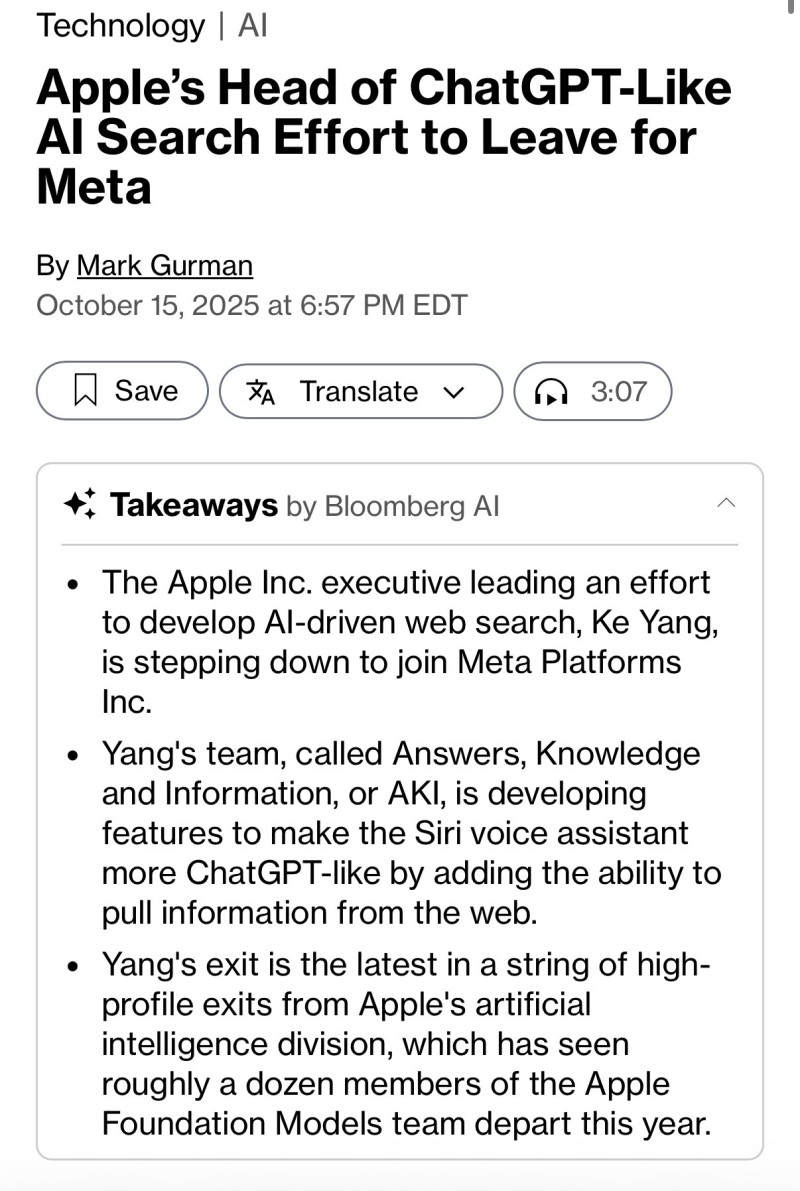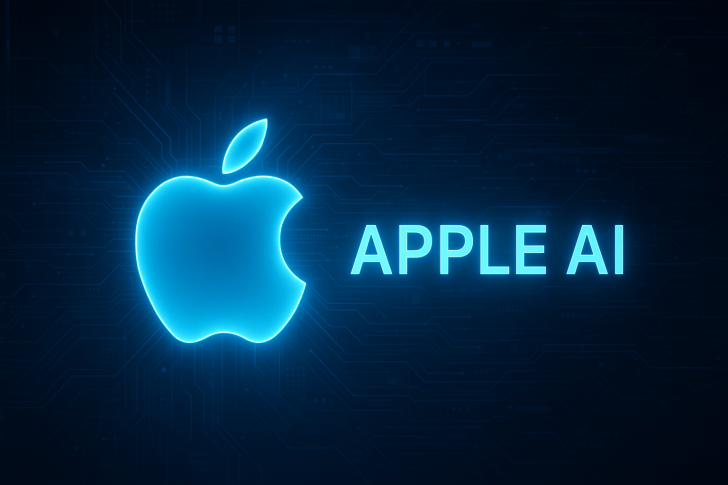Apple is losing another key player from its artificial intelligence division. Ke Yang, who was recently promoted to lead the company's ChatGPT-like AI search initiative, has decided to join Meta instead. This departure highlights the fierce competition for AI talent among tech giants and raises questions about Apple's ability to keep pace in the rapidly evolving generative AI landscape.
Details of Ke Yang's Role and Departure
Ask Perplexity Ke Yang headed Apple's Answers, Knowledge and Information (AKI) team, responsible for making Siri more sophisticated by integrating ChatGPT-like capabilities.

The team's mission was to enable Siri to pull and process information directly from the web in real-time. Yang's resignation came just weeks after his promotion and represents the 12th known exit from Apple's Foundation Models team this year. This group plays a central role in Apple Intelligence and its large language model capabilities, which are essential for future AI-powered Siri enhancements.
Why This Matters
Yang's departure is more than just a personnel change. It reflects potential instability within Apple's AI efforts while competitors like Meta, Google, Anthropic, and OpenAI are pushing their AI platforms forward aggressively. Apple has struggled to match the pace of its rivals despite unveiling "Apple Intelligence" earlier this year.
For Meta, bringing in Yang's expertise strengthens its ambitions to integrate powerful AI into its ecosystem, particularly in search and assistant tools that could compete with Siri and ChatGPT. The frequent movement of talent across companies also points to a highly fluid AI labor market, where top researchers and executives gravitate toward the most ambitious and well-funded projects.
The Broader Context
Yang's move reflects a wider reshuffling happening across Silicon Valley's AI sector. Apple's multiple high-profile exits in 2025 have sparked concerns about whether the company can retain talent while scaling its AI products. Meanwhile, Meta continues attracting experienced AI leaders as it builds out its foundation model capabilities, positioning itself to compete directly with OpenAI and Google.
 Saad Ullah
Saad Ullah

 Saad Ullah
Saad Ullah


